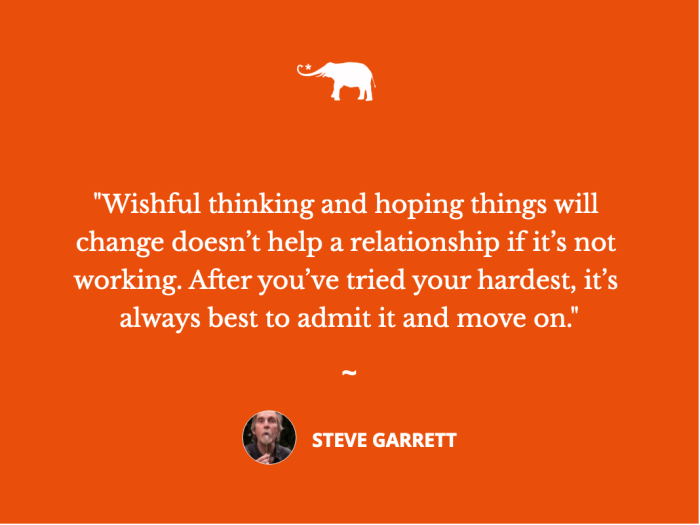Some of these key things were absent from my past relationships.
(I don’t want to say they “failed” because each was a wonderful experience in its own way.)
I’ve learned how essential they are if we want to deeply connect with someone.
If you can say an enthusiastic “yes” to them this year, all might be well in your love life:
1. You feel essentially good about yourself and have good self-understanding. You have worked on, or are working on, any past or present emotional hang-ups and are able to talk about them with good humour and without shame.
2. You have empathy and compassion for your partner’s tender areas and blind spots and are kind and careful around them. You can handle criticism from them—not taking it personally when it’s their stuff but listening and changing when you’re “the problem.”
3. You’re aware of, and respect, your own core needs—as well as those of your partner’s. You’re comfortable asking for them to be met but are always open to compromise if they are in conflict with your partner’s. You believe in compromise—the art of give and take.
4. You have empathy for your partner’s needs and feelings and try to understand them, but only offer advice when it’s asked for. You know that trying to “fix” someone is a type of controlling behaviour, so you don’t try; you’re a caregiver, not a caretaker (or a rescuer).
5. You take responsibility for your feelings and actions. And you are ready to learn from them, with no need for blaming or shaming. You know that sharing intimacy is bound to bring your (and your partner’s) buried pain to the surface, and you can handle that.
6. You expect the best from your partner and “dare to trust them.” You assume there must be an explanation or misunderstanding if they act in a way that seems hurtful. But you also look after yourself and have clear boundaries against any behaviour that is unacceptable.
7. You and your partner have complementary values, beliefs, and dreams—and similar passions, pleasures, and interests. You like enough of the same kind of music, theatre, art, holidays, but you like to be challenged by differences and are open to new ways of seeing.
8. You both have similar levels of intelligence and a compatible sense of humour—so there is mutual respect, attraction, and curiosity. You also have an equal level of self-confidence and compatible orientation to the mainstream and authority. You are friends as well as lovers.
9. You have similar status, income, and a compatible orientation to money and how it can be spent and saved. You get more joy from giving than receiving, but you know that receiving gracefully is another kind of gift.
10. You’re both part of the same community and/or have overlapping communities. You know and like each other’s friends and family, and your work has some common aims.
And here are five bonus observations on love and intimacy from my own experience:
1. Wishful thinking and hoping things will change doesn’t help a relationship if it’s not working. After we’ve tried our hardest, it’s always best to admit it and move on.
2. Purely sexual attraction and the novelty of being with someone new wears off after about six months. Maybe a year, if you’re really lucky!
3. Meaning well and being nice in a relationship is not enough to keep it alive and growing. There have to be deeper roots, with plenty of emotional sunshine and fertiliser.
4. Secrets and hidden feelings destroy the deep connection we have with a partner. An important first step to being really open is making sure we’re not keeping any secrets from ourselves.
5. Being right in a disagreement will not lead our partner to respect or like us more. But listening to—and respecting—their different point of view will.
~
 Share on bsky
Share on bsky







Read 0 comments and reply